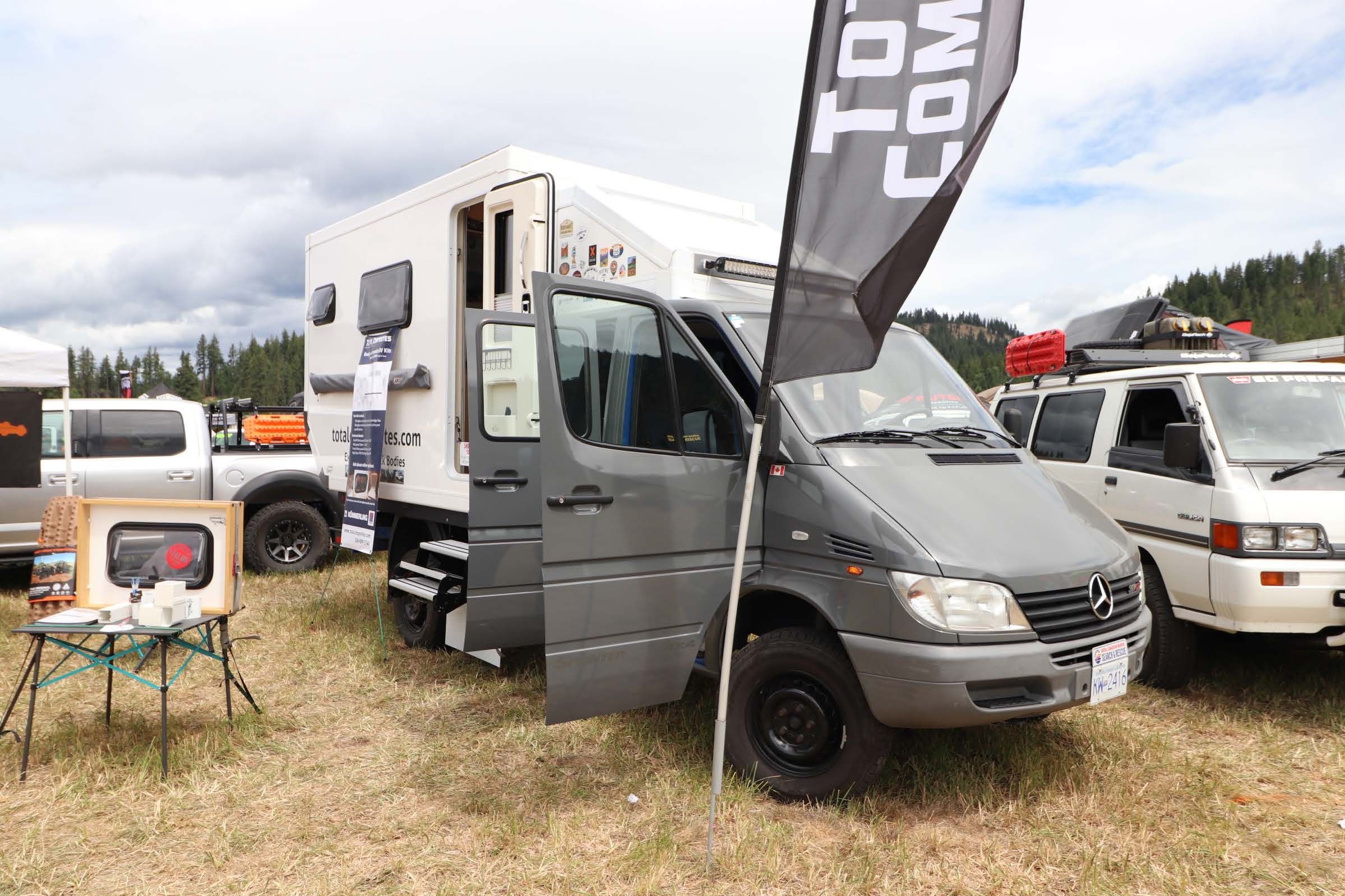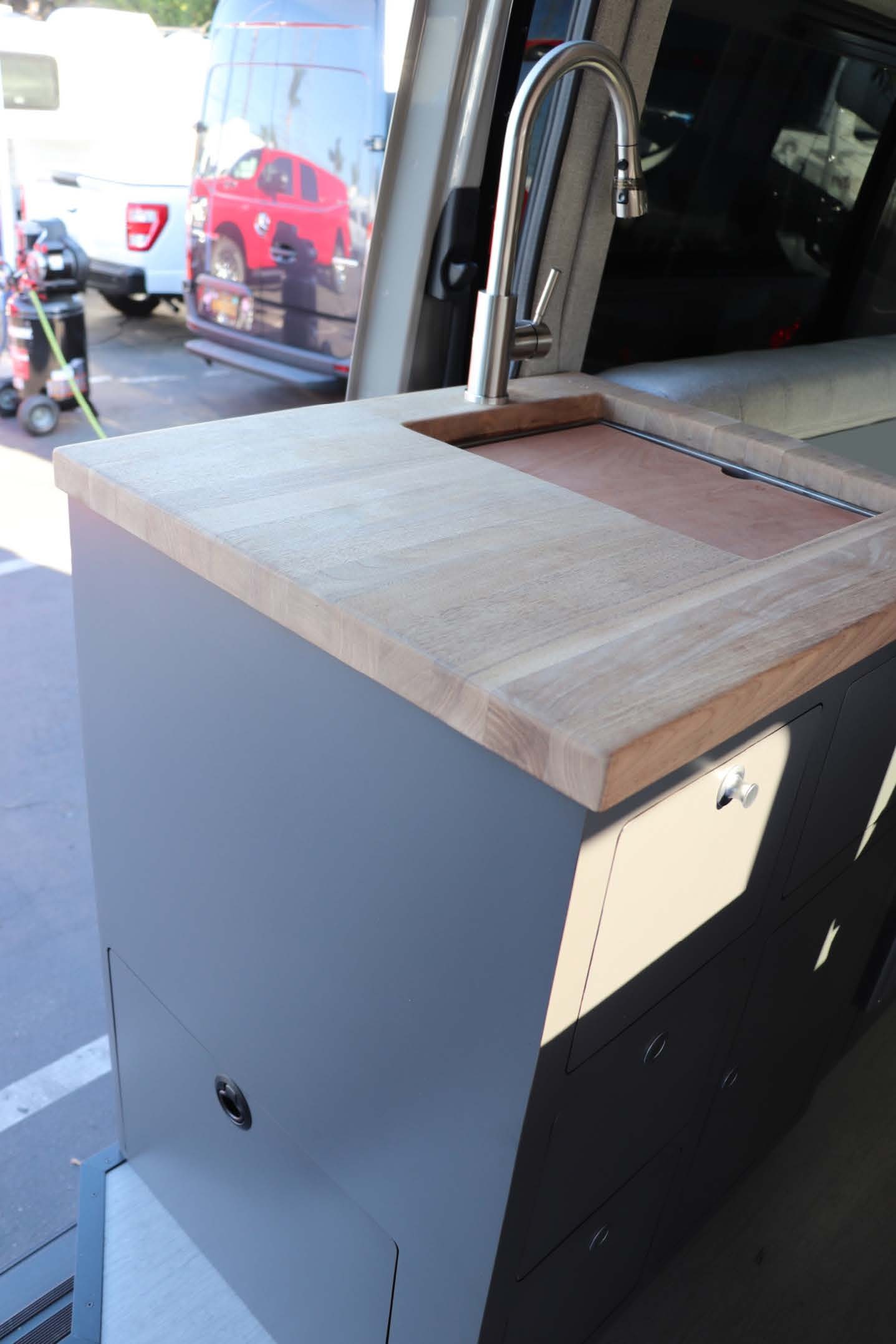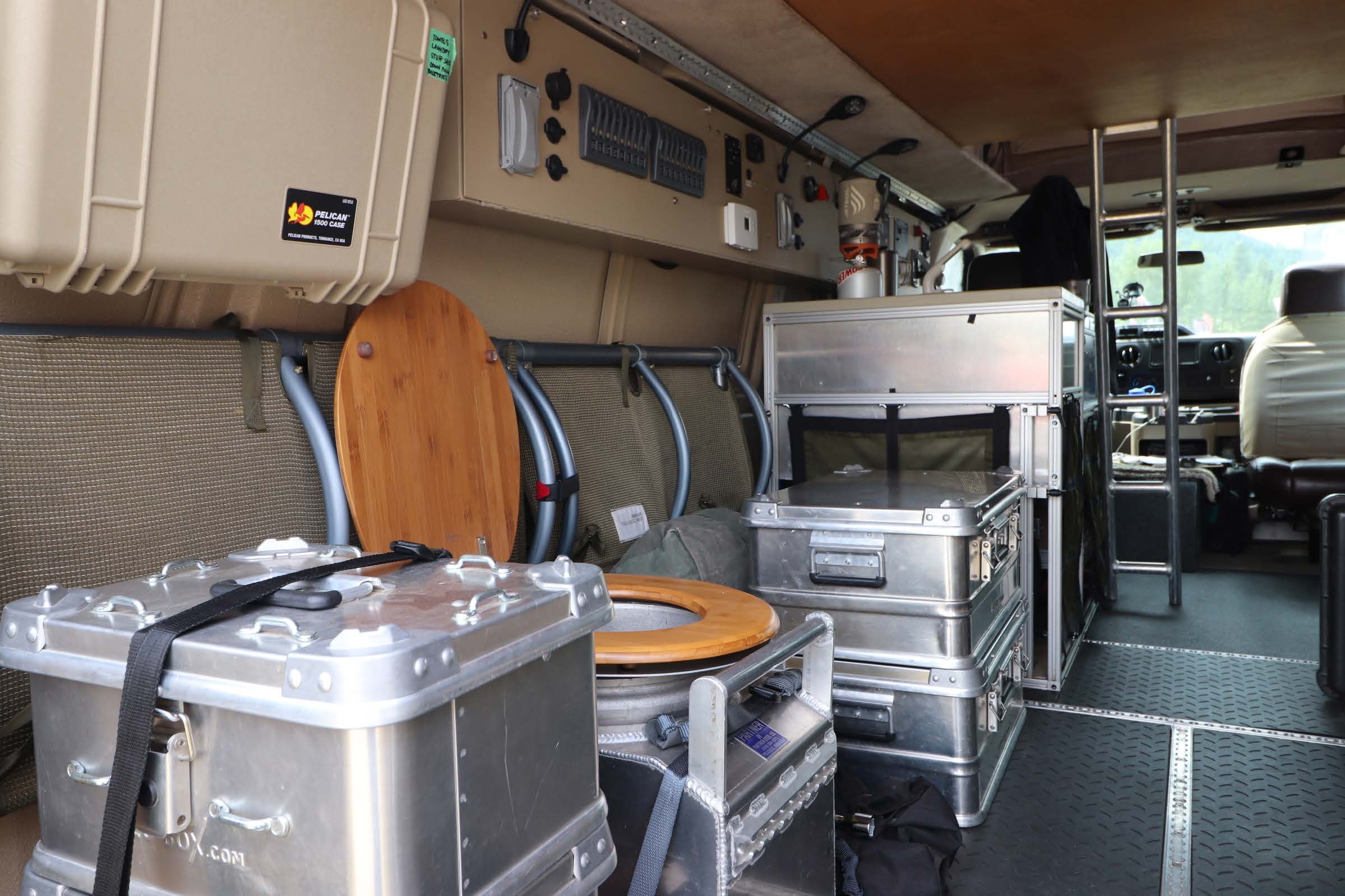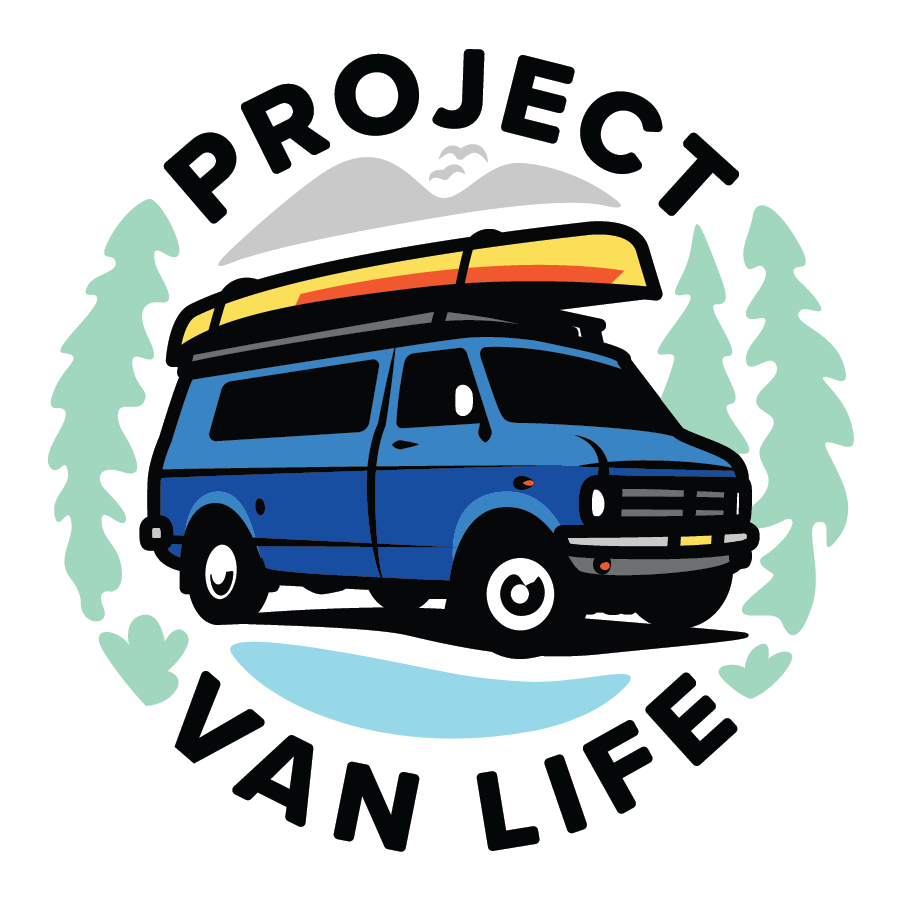Are you a free spirit out to explore the world? Living in a van can be exciting and liberating, but it comes with its challenges. One of the biggest tests is managing water use while off-grid. Fear not, we've got some solid ways to conserve water.
Planning water use is crucial. Before embarking, take into consideration what's available and how long it will last. Budget your use to avoid running out. To make the most of the water that's available, let's look at ways to conserve water.
Overview
Can you learn from seasoned campers to make your van life better? Experience has taught them ways to reduce water by altering our behavior patterns. You can become a water savings expert by applying these tips during van living.
Shower before the trip. Taking fewer showers during the adventure reduces water use. Extended periods between showers and shorter showers can lessen water use. Klean Freak Body Wipes and dry shampoo can extend time between showers too.
Collect rinse water for flushing. This saves clean water and extends your stay. Making one-pot meals and grilling instead of using many pots and pans reduces dishwashing and saves water.
These tips not only conserve water, but also extend your trips by requiring less water. Plan water use so you never run out of drinking or wash water on your adventures.
Plan Your Water Use
Track how much water you use for cooking, cleaning, and personal hygiene each day. This will indicate where to cut back and conserve. Reuse plates and utensils rather than washing them every time. Reduce the number of showers without becoming odiferous.
Conserving water isn't only a matter of reducing consumption, but also in detecting plumbing leaks. Check faucets, hoses, shower heads and toilets regularly. A few drops or small drips can waste a lot of water even if you have only one sink. Repair leaks immediately to prevent waste.
Use a Water-Saving Faucet Aerator
Use a water-saving faucet aerator that mixes air with the water flow to create a steady stream to reduce water use. Installing them reduces water use without losing functionality. A faucet aerator can save up to 700 gallons of water per year, and installing them on your sink is an easy way to save water while still maintaining pressure for washing and rinsing. By mixing air into the water stream, these devices reduce the flow rate without pressure loss.
Aside from saving money on campsites or refilling stations, conserving water conserves resources and reduces the environmental impact. Although aerators may seem like a small upgrade, it adds up when combined with other efforts such as reusing grey water.
In the next section, we'll discuss how to reuse grey water to minimize waste. With these tips, longer stays off-grid are possible while minimizing the environmental impact.
Reusing Grey Water
Water conservation when camping is crucial, and one way is by implementing a grey water collection system that reuses showering and dishwashing wastewater. Using a tank or bucket, grey water can be reused for flushing the toilet or watering plants. This also reduces the amount of wastewater generated during van life.
To ensure safe grey water, use biodegradable, eco-friendly soaps and cleaning products. Filter the water before reuse to remove debris or particles. Dispose of chemicals or substances that cause contamination.
Grey water collection is not only water-efficient but also cost-effective. By reducing fresh water reliance, off-grid stays can be extended without having to refill your tank or find new sources of clean water.
Using a spray bottle for rinsing dishes instead of running them under the faucet, freshwater use is further reduced.
Use a Spray Bottle for Rinsing Dishes
Use a spray bottle to rinse dishes, a way to conserve water while still getting plates clean. Here are more tips on how to incorporate water-saving methods:
- Spray the dishes thoroughly, making sure all soap suds are washed away.
- Use biodegradable soap and hot water to scrub the dishes.
- Dry dishes using an absorbent towel or let them air dry.
This is also a way to ensure grey water is not wasted. Not only will it help extend freshwater tank life, it will minimize wastewater production.
Next: limit shower time and use a low-flow shower head. This will help conserve more water while enjoying van life.
Limit Shower Time and Use a Low-Flow Shower Head
Every drop of water counts, so limit shower time and switch to a low-flow shower head. Doing so helps preserve resources. Aerators reduce water use by up to 50%, maximizing efficiency when conserving water. Hardware stores or online retailers can help find the right aerator.
Another way to conserve water is by using dry shampoo or a leave-in conditioner to maintain clean hair without using as much water. They don't require rinsing like regular shampoos and conditioners. Bathing in lakes or rivers can be an option if it's safe and guidelines are followed.
Minimizing fresh water waste while living in a van requires a conscious effort. Implementing these water conservation tips will not only extend your stay but preserve resources for generations to come. Next, we'll explore how rainwater can further aid in maximizing efficiency while camping off-grid.
Collecting Rainwater
If you're camping in an area with regular rainfall, why not collect rainwater? Make the most of nature and collect water for washing dishes or flushing toilets. A rain barrel is a cheap, easy way to conserve water.
Find a spot on your van's roof and install gutters to direct water into the barrel. Use filters to remove debris and prevent mosquitoes from breeding. Water consumption will be reduced significantly while still being able to perform basic tasks like cooking and cleaning.
Collecting rainwater is one way to save, and there are other tips to reduce consumption, such as using a broom to clean your van's exterior and save gallons of water per wash. Keep reading for more ideas on reducing water use.
Broom Vs. a Hose: A Better Way to Clean Your Van's Exterior?

Use a broom on your van's exterior if you don't care about the finish.
Sweeping away dirt and debris with a broom instead of using a hose to clean the van's exterior is questionable at best. While it may be effective and doesn't cost much, it can scratch the finish of an otherwise pristine van. While it saves water and reduces the amount of grey water generated, it can also lower the resale value when it comes time to sell your van.
Although using a broom or brush could be just as effective as using a hose, the bristles on the broom may create scratches in the finish that could require repainting the van, creating an environmental impact much greater than grey water disposal. Van owners would be wise to disregard this tip and instead use a commercial car wash that recycles water.
Be Mindful of Leaks

A leaky faucet can add up.
Being able to detect leaks is crucial to conserving precious resources during dry camping trips. Even a small leak can lead to significant water loss, which can be detrimental when living off-grid. Take some time each week to check for any leaks and fix them promptly.
Here are some water saving tips while living in a van:
- Install faucet aerators: This reduces water flow by up to 50%, an easy, affordable way to conserve water.
- Fix faucets immediately: A drip may seem like a small issue, but it can waste up to 20 gallons of water a day. Make sure to turn faucets off completely after use.
- Monitor tank levels regularly: Keep track of fresh and grey water tank levels to gauge the amount of water left. This will prevent overuse and ensure water doesn't run out.
- Use biodegradable soap and cleaning products: These products won't harm the environment, an excellent choice for off-grid camping.
Remember, water is crucial in van life, especially when dry camping for extended periods. These tips will help save precious resources while still enjoying life on the road.
Cooking efficiently is important. Here's how to cook without wasting resources.
Cook Efficiently
Whip up delicious meals grilling, steaming, or baking by using minimal water and reusing it for other purposes. When boiling water, use only the amount needed and consider reusing it for other purposes or dish washing. This not only reduces water use but also saves time and energy.
Choose cooking methods that use fewer pots and dishes. Cooking multiple meals at once saves time, energy and water. When cleaning up after cooking, wipe down dishes immediately after to eliminate soaking later. Collect rinse water from dishwashing for flushing or other purposes.
In addition, aerators reduce the amount of water used when washing dishes or filling pots, stretching freshwater supplies and extending off-grid adventures without sacrificing comfort or convenience.
Next up: Use a sponge or cloth for washing instead of running them under running water.
Use a Sponge or Cloth for Dish Washing
Off-grid adventures are more sustainable when scrubbing dishes with a sponge or cloth instead of rinsing. In saving drinking water, you'll also reduce gray water production, making your freshwater last longer. Here's why using a sponge or cloth to wash dishes is an effective way to conserve water:
- Control Water Use: Using a sponge or cloth controls the amount of water used when cleaning dishes. Wet the dish once, scrub it clean and rinse it quickly without running the faucet continuously.
- Less Gray Water Production: Reducing the amount of dish washing water produces less grey water. The freshwater tank will last longer before needing to be refilled.
- Saves Freshwater: When camping off-grid, finding sources of drinking water can be challenging. By conserving freshwater through mindful dishwashing habits, you'll extend your stay without having to refill your tank as often.
- Eco-Friendly: Saving water is not only good for your wallet but also for the environment. The less water we use when camping off-grid, the less strain we put on natural resources like rivers and lakes.
By using a sponge or cloth, you're taking an important step towards sustainability on-the-go. Next up, learn how installing a foot or hand pump for your faucet can further reduce your freshwater usage and make life on-the-road even more self-reliant!
Install a Foot or Hand Pump for Your Faucet
If you're looking to save water while living in a van, dish washing with a sponge or cloth is a great start. But there's more you can do! One option is to install aerators on your faucets. Another option is to take it one step further and install a foot or hand pump system.
A foot or hand pump system allows you to control the flow of water more precisely, preventing any unnecessary waste. With this type of system, you'll only use the amount of water you need for washing, rinsing, or other tasks. This ensures that no water goes down the drain unnecessarily.
Installing a foot or hand pump may seem like an extra step, but it's well worth it in terms of saving water and reducing your environmental impact. Plus, it adds another level of self-reliance to your van life setup. So if you're looking to save water, consider installing a foot or hand pump for your faucet.
As important as installing new systems and making changes may be, practicing good habits is equally important when trying to conserve water while living in a van. In the next section we'll discuss some easy habits you can incorporate into your daily routine that will help save even more water and ensure that your supply lasts longer during dry camping trips.
Practice Water Conservation Habits
To extend your dry camping trips and reduce your environmental impact, it's essential to adopt water conservation habits that you can incorporate into your daily van life routine. Here are some tips on how to save water living in a van:
- Install low flow aerators: Low flow aerators for faucets and shower heads can help reduce the amount of water you use without sacrificing pressure or performance.
- Use a basin: When brushing teeth or dish washing, try using a basin instead of letting the faucet run continuously. This way, you only use the water you need.
- Fix leaks promptly: Even small leaks can waste significant amounts of water over time, so it's important to fix them as soon as possible.
- Recycle graywater: Instead of letting all the used water go down the drain, consider recycling some of it for other purposes like flushing toilets or watering plants.
By incorporating these water saving tips, you'll not only conserve valuable resources but also extend your dry camping adventures. In addition to these practices, be sure to keep an eye out for any other ways you can reduce your use. Next up is learning how to use biodegradable wipes for personal hygiene, a great way to minimize your environmental impact.
Use Biodegradable Wipes for Personal Hygiene
Incorporating biodegradable wet wipes into your personal hygiene routine can be a game changer for van life, especially since it takes an average of 37 gallons of water to fill a standard bathtub - that's enough water to last a full week for some dry campers! By using these wipes, you can conserve water and still maintain good hygiene habits.
To make the most out of this tip, consider bringing along some low-flow aerators for your faucets. These small devices reduce the amount of water that comes out without sacrificing water pressure. In addition, installing a rain barrel on the roof of your van can allow you to collect rainwater which can be used for flushing or dish washing.
Another option is to use washable cloths instead of disposable wipes. This not only reduces waste but also saves money in the long run. Just make sure to properly clean and sanitize them after each use to avoid any bacterial buildup. With these simple tips, you'll be able to save water while still maintaining good hygiene practices in your van life adventure.
Frequently Asked Questions
What are some tips for RVing with kids and roadschooling?
Looking for tips on RVing with kids and road schooling? Look no further than Chelsea Gonzales' Wonder Wherever We Wander blog. A full-time RVer and freelance writer, she shares her RV expertise, including how to raise children on the road and make the most of your travels. From van selection to designing camper conversions, her blog will help you hit the road. If you're looking for more tips and resources, join the RVing Know How VIP community.
Can Choosing a Cheap Van Save Money During a Conversion Project?
When converting a van into a camper, a cheaper vehicle could save you money to allocate to other aspects. Imagine cruising down an open road with the freedom and the ability to park and stay anywhere you please. With some resourcefulness and self-reliance, you can create an affordable campervan conversion that fits your lifestyle. The key is knowing what to expect before hitting the road and choosing the right vehicle for your needs. The RV LIFE app offers resources and information to help plan your adventures on the road.
What is the RV LIFE app, and how can it help with planning RV adventures?
Looking to plan your next RV adventure? Look no further than the RV LIFE app! This handy tool allows you to discover new destinations, plan routes, and even share your adventures with friends and family. With features like campground reviews, GPS mapping, and real-time weather updates, the RV LIFE app is an essential tool for any road trip enthusiast. Download it now and start planning your next great adventure on the open road.
What is the average water use for a couple, and where can RVers find water sources for dry camping?
As a couple, you may wonder how much water you need about 7 gallons of water per day while camping off-grid. However, the amount of freshwater needed depends on your habits and trip length. Finding clean water can be challenging, but wastewater treatment facilities, public and private campgrounds, rest areas and travel centers are good options. Activities such as surfing or strenuous hikes may require more water. Conserve freshwater by recycling gray water and using biodegradable cleaning products. Join the RVing Know How VIP community for tips and resources on dry camping.'
Conclusion

All the comforts of home.
Congratulations on making it to the end of this article. You're now armed with a wealth of knowledge on water efficiency. But who needs clean dishes or personal hygiene?
In all seriousness, these tips and tricks can make all the difference in extending your time off-grid and conserving resources. This lifestyle relies not only on your ability to conserve water, but to do your part for the planet while you're out adventuring. Van life is good!
